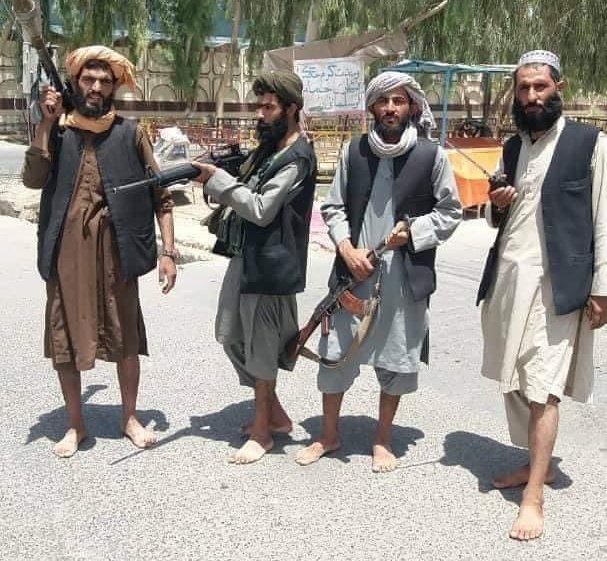
Why Afghanistan under Taliban may be sitting on a COVID bomb
The vaccination process is disrupted, the citizens are in no state to follow safety protocols, and the Taliban may deflect international help

Last week, before Kabul fell to Taliban, the militant fundamentalist organisation issued orders banning COVID vaccines in Paktia, located in east Afghanistan, which it had captured. Afghan radio and television channel Shamshad News said the Taliban put out a notice at Paktia Regional Hospital saying vaccines should not be administered.
If the incident portends what’s to come now that the entire South Asian nation is under Taliban rule, Afghanistan may be sitting on a COVID bomb. According to the World Health Organisation (WHO), from January 3, 2020 to August 18, 2021, the nation saw 1.5 lakh confirmed cases of COVID with 7,043 deaths.
Even before the recent coup, it was facing a severe humanitarian crisis including a drought and high levels of hunger. In June 2021, then Afghan President Ashraf Ghani had declared a drought. Data from the International Federation of Red Cross and Red Crescent Societies (IFRC) revealed 30% of the country was “exposed to severe drought”. It further said 50% faced serious drought 20%, moderate drought.
Second tragedy?
Video clips and images of thousands of people trying to flee the country raise the question most relevant in pandemic times — whither safety protocols? COVID, known to spread rapidly in tightly packed populations, may turn out to be Afghanistan’s next tragedy, it is feared.
Also watch: What happens to those who helped foreign powers against Taliban?
Fear of the Taliban is likely to keep people cooped up indoors for months at an end. The highly vital government-pushed safety and hygiene agenda — such as insistence on masking and social distancing — is going to be absent, at least for a while.
“As the situation in Afghanistan continues to deteriorate rapidly, WHO is extremely concerned over the unfolding safety and humanitarian needs in the country, including risk of disease outbreaks and rise in Covid transmission,” media reports quoted WHO spokesperson Tarik Jasarevic as saying at a UN press briefing.
Poor healthcare facilities
For long, there has been concern over lack of substantial healthcare data in Afghanistan. The testing rates are low and there is no national death register. “Confirmed cases of and deaths from COVID are likely to be underreported overall in Afghanistan,” the UN has noted.
While there’s not much data to gauge how the country weathered the second wave of the pandemic, if the third wave were to strike, it may be truly lethal.
The country was said to be facing an acute shortage of healthcare facilities such as ICU beds and oxygen supply. The Taliban takeover is only likely to have exacerbated it. Jasarevic reportedly told the UN briefing the chaos at Kabul international airport was slowing deliveries of medical supplies.
Vaccine challenge
After much hesitancy and initial scepticism, COVID vaccination was reportedly picking up slowly in Afghanistan. As of August 10, 2021, a total of 18 lakh doses had been administered. It was the recipient of vaccine support from several countries including India. However, the change in rule is expected to bring the inoculation drive to a halt.
The Taliban is reported to be against vaccination — the reason why polio is still endemic in the country. Under its conservative interpretation of Sharia, women should not go out alone. Therefore, even before the coup, it had reportedly implemented bans on door-to-door vaccinations in regions where it held power, probably because the healthcare workers are mostly women.
The extremist group also believes Islam doesn’t allow vaccines. It’s further said to view vaccines as a Western ploy to make Muslims impotent. Considering vaccines are the only known medical answer to COVID, their possible ban in the near future may make Afghanistan highly vulnerable to a third wave. The virulence of virus variants such as Delta only heightens the risk.
Global help
Medical help from other countries may not immediately pour in with the Taliban at the helm. The militants are not known to be kind to international volunteers.
According to reports, Médecins Sans Frontières (MSF — Doctors Without Borders) has advised its Afghan staff to go home. It is also trimming the number of international staff at its coordination office.
Down to Earth quoted Meenakshi Ganguly, South Asia Director at Human Rights Watch, as saying: “We do hope that the international community will step in urgently to make sure that humanitarian services such as continuation of vaccination and medical services, protection of vulnerable communities, women and children. The global community has a responsibility to do so.”
The WHO has reportedly called on all parties in Afghanistan to respect and protect civilians, health workers, patients and health facilities. For now, its mobile health teams have stayed put in Kabul.


